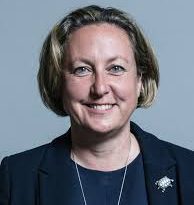Matt Hancock – 2020 Statement on Covid-19 Winter Plan and Tiers
The statement made by Matt Hancock, the Secretary of State for Health and Social Care, in the House of Commons on 26 November 2020.
On 23 November, the Prime Minister set out our covid-19 winter plan in Parliament. Our covid-19 winter plan puts forward the UK Government programme for suppressing the virus, protecting the NHS and the vulnerable, keeping education and the economy going, and providing a route back to normality.
Thanks to the shared sacrifice of everyone in recent weeks, in following the national restrictions, we have been able to start to bring the virus back under control and slow its growth, easing some of the pressure on the NHS.
We will do this by returning to a regional tiered approach, saving the toughest measures for the parts of the country where prevalence remains too high.
The tiering approach provides a framework that, if used firmly, should prevent the need to introduce stricter national measures.
On 2 December, we will lift the national restrictions across all of England and the following restrictions will be eased:
The stay-at-home requirement will end.
Non-essential retail, gyms, personal care will reopen. The wider leisure and entertainment sectors will also reopen, although to varying degrees.
Communal worship, weddings and outdoor sports can resume.
People will no longer be limited to seeing one other person in outdoor public spaces, where the rule of six will now apply.
The new regulations set out the restrictions applicable in each tier. We have taken into account advice from SAGE on the impact of the previous tiers to strengthen the measures in the tiers, and help enable areas to move more swiftly into lower tiers.
The changes to the tiers are as follows:
In tier 1, the Government will reinforce the importance that, where people can work from home, they should do so.
In tier 2, hospitality settings that serve alcohol must close, unless operating as restaurants. Hospitality venues can only serve alcohol with substantial meals.
In tier 3, hospitality will close except for delivery, drive-through and takeaway, hotels and other accommodation providers must close (except for specific exemptions, such as people staying for work purposes, where people are attending a funeral, or where they cannot return home) and indoor entertainment venues such as cinemas, theatres and bowling allies must also close. Elite sport will be played without spectators. Organised outdoor sport can resume, but the Government will advise against higher risk contact sports.
These are not easy decisions, but they have been made according to the best clinical advice, and the criteria that we set out in the covid-19 winter plan.
These are:
Case detection rates in all age groups
Case detection rates in the over-60s
The rate at which cases are rising or falling
Positivity rate (the number of positive cases detected as a percentage of tests taken)
Pressure on the NHS.
The indicators have been designed to give the Government a picture of what is happening with the virus in any area so that suitable action can be taken. These key indicators need to be viewed in the context of how they interact with each other as well as the wider context but provide an important framework for decision making, assessing the underlying prevalence in addition to how the spread of the disease is changing in areas. Given these sensitivities, it is not possible to set rigid thresholds for these indicators.
The regulations will require the Government to review the allocations every 14 days, with the first review complete by the end of 16 December.
We have been able to announce UK-wide arrangements for Christmas, allowing friends and loved ones to reunite, and form a Christmas bubble of three households for five days over the Christmas period.
We have increased funding through our contain outbreak management fund, which will provide monthly payments to local authorities facing higher restrictions.
We are also launching a major community testing programme, homing in on the areas with the greatest rate of infection.
This programme is open to local authorities in tier 3 areas and offers help to get out of the toughest restrictions as fast as possible.
The listed areas will be in each tier from the 2 December. This list will also be published on gov.uk and a postcode tracker will be available for the public to check what rules apply in their local area.
A list of allocations can be found at: https://questions-statements.parliament.uk/written-statements/detail/2020-11-26/HCWS608


